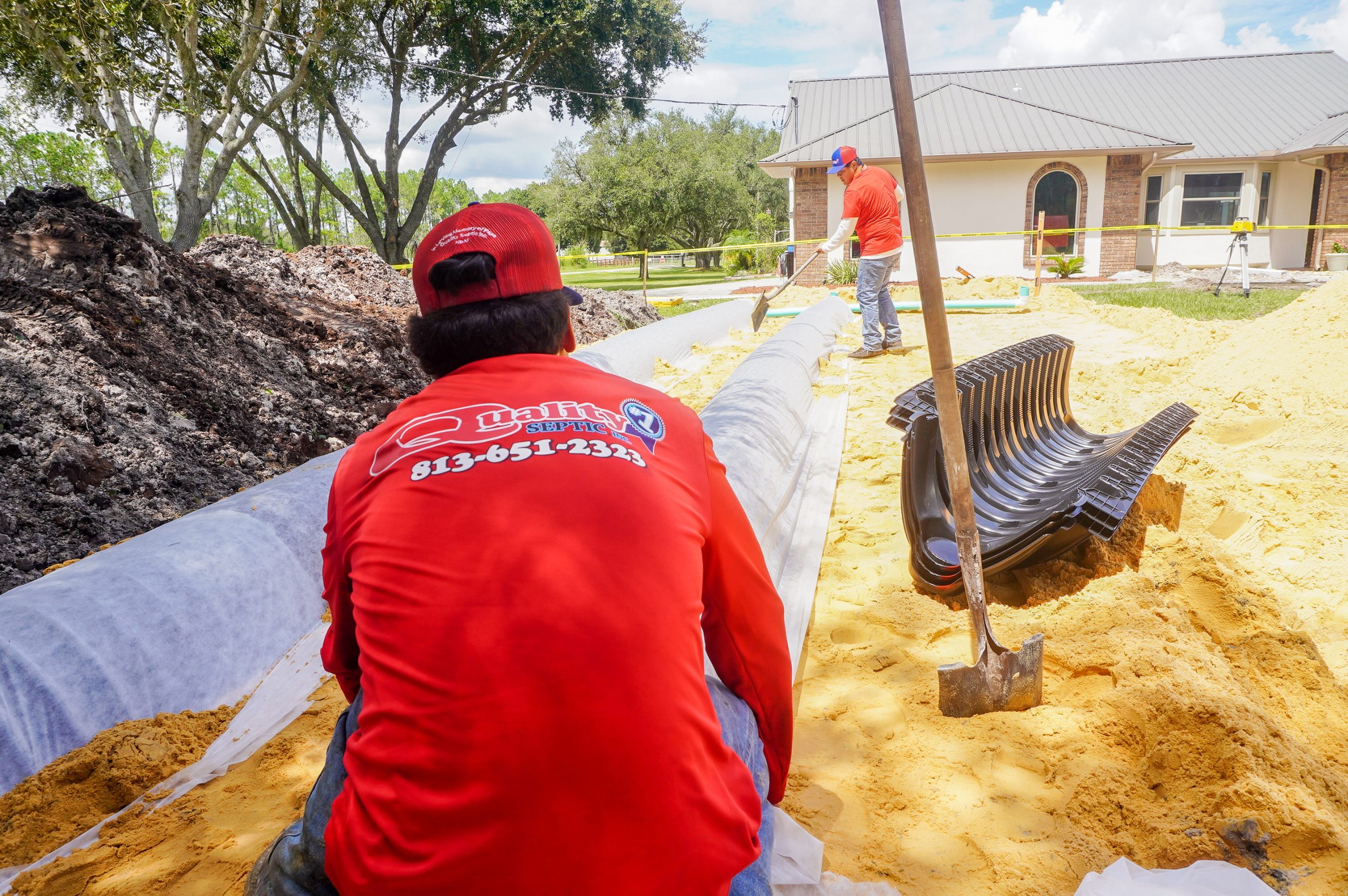Spring in Florida is an exciting time. The weather is pleasant, flowers begin to bloom, and a fresh start is on the horizon. With these changes, spring can also bring a lot of rainfall. While all the rain is great for new growth for your lawn and garden, they might not be so kind to your septic system – especially your drain field. If you are a homeowner in Hillsborough County, or anywhere in Central Florida, now is the time to prepare your septic system for heavy rainfall. By taking steps now, you can avoid costly and messy issues in the future. Take it from the experts at Quality Septic Inc. and continue reading for a detailed guide on how heavy rainfall may affect your septic system and what to do to prepare.
What Happens to Your Drain Field During Heavy Rain?
Your drain field is an underground system of perforated pipes that disperse wastewater from the septic tank into the surrounding soil for natural filtration and absorption. When Florida’s heavy spring rains saturate the soil, the drain field has a harder time absorbing all the waste. Think of it this way, when you have a soaked sponge, it cannot absorb any more water. This can lead to a whole host of problems including:
- Slow draining toilets and sinks
- Gurgling sounds in your plumbing
- Standing water over your drain field
- Sewage backups into your home
- Strong odors in your yard
Why Florida Homeowners Should Pay Extra Attention in April
April kicks off the beginning of Florida’s wet season, which typically stretches all the way into October. While we don’t see the heaviest rain until summer, the ground has already started to soften — and that means your drain field becomes more vulnerable to overload early in the season.
Plus, a lot of people tend to do spring landscaping and generally increase water usage this time of year. All of that adds extra strain on your system.
How to Prevent Drain Field Problems This Spring
Fortunately, there are a few proactive steps you can take to keep things flowing smoothly:
1. Schedule a Septic Inspection
Before the rain gets heavier, have a professional like Quality Septic Inc. inspect your tank and drain field. We’ll check for signs of clogging, oversaturation, or damage.
2. Pump Your Septic Tank if Needed
If your tank is nearing capacity, heavy rain can force wastewater out into the drain field too quickly — or even back into your home. Regular pumping can help prevent that. Most households need pumping every 3–5 years, but in Florida’s wet climate, it may need to be more frequent.
3. Redirect Roof and Yard Runoff
Make sure gutters, downspouts, and French drains are directing water away from your drain field. Additional surface water can make saturation worse.
4. Limit Water Usage on Rainy Days
Avoid running dishwashers, washing machines, or long showers when it’s actively raining. Let your drain field recover instead of adding more load.
5. Watch for Warning Signs
If you notice any slow drains, wet spots, or odd smells — don’t wait. These are early warning signs that your system is struggling.
Quality Septic, Inc. Has Your Back
At Quality Septic, Inc., we’ve been helping Florida homeowners navigate the ups and downs of septic ownership for decades. We know what heavy rains do to systems across Hillsborough County, and we know how to fix it fast.
Whether you need a routine inspection, emergency drain field repair, or expert advice, we’re here to help.
Ready for an Inspection or Pump-Out?
Call Quality Septic, Inc. today at 813.737.7093 or schedule service online. Let’s make sure your system is ready for whatever April brings — rain or shine.

